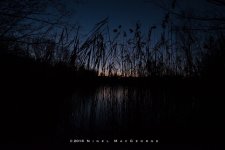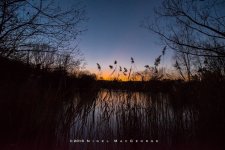Horoscope Fish
Senior Member
You might try posting in the Low Light & Night Photography sub-forum. I have a friend who posts there semi-regularly who uses a D7000 and gets some pretty amazing shots. He's using a 6" reflector scope as well so there's that, but he also does exposures that last two or three MINUTES at a time. My overarching point being, posting the Low-Light & Night sub-forum might get you better answers.But of course, investment is needed when you are up against the barriers, and with astro work there are time constraints, with modern Nikon lenses there are aperture constraints, and with digital work there are sensor constraints. I really need a full frame camera with better low light (eg D750) but first I shall get a brighter lens which will also work on my DX camera until I can afford the FX model.
....


